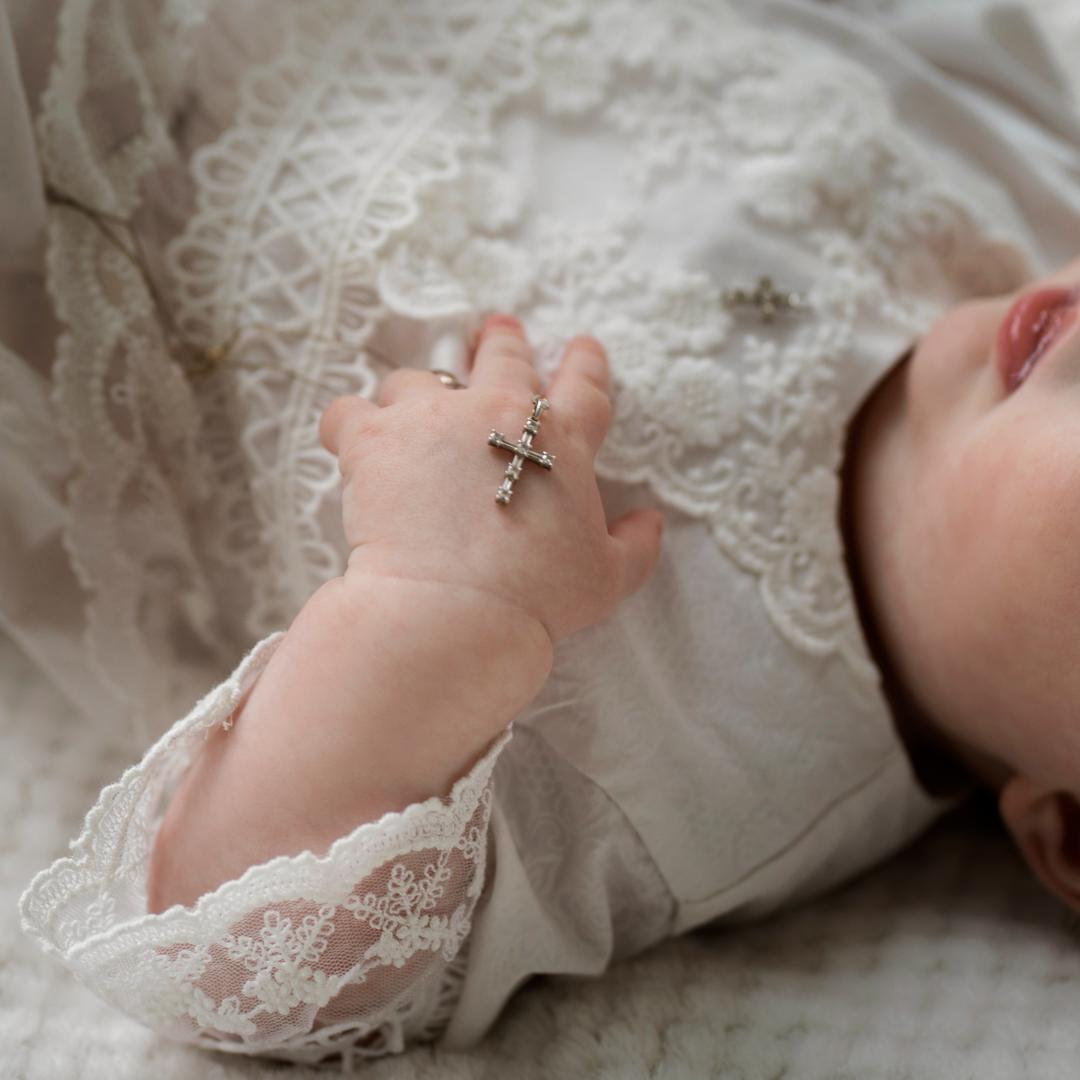
What is the difference between communion, confirmation and baptism?
On April 19, 2020, the first communion will be celebrated in many Catholic churches. The traditional day of the First Communion, which is still common in many areas, is the Sunday after Easter (White Sunday). However, many communities are moving to reschedule the appointment.
WHAT IS CELEBRATED AT COMMUNION?
Communion, also known as the Eucharist, is a sacrament that is practiced by many Christian denominations. It is the celebration of the Last Supper that Jesus had with his disciples. In communion, bread and wine are consecrated and consumed as symbols of the body and blood of Jesus Christ.
- In order to explain the difference between communion and confirmation, one has to set the terms correctly. Communion in the Catholic Church means the sacrament of the Eucharist, participation in the Lord's Supper.
- The first Eucharist is received by a believer at his first communion. As a rule, this takes place at the age of nine after preparation for the reception of the sacrament, the communion class.
- The Eucharist can only be received with First Communion, then the Catholic can receive the Eucharist in every service. After baptism, the first communion is a further step towards full acceptance into the community of believers.
- This reception is concluded with the reception of the sacrament of confirmation, it is the last step. Then the believer is a full member of the religious community, endowed with all rights and duties. To be confirmed, you have to be at least 15 years old because this sacrament requires a certain level of maturity.
- In confirmation, which is donated by a bishop, the confirmee gets a cross drawn on his forehead with oil, combined with the words "Be sealed by the gift of God the Holy Spirit".
- The Holy Spirit plays an important role in the sacrament of Confirmation: He encourages, strengthens and instructs the confirmee to live a conscious life as a Christian.
WHAT IS COMMUNION FOR?
Communion, also known as the Eucharist, is a sacrament that is celebrated by Christians. It is a ceremony in which bread and wine are consecrated and then consumed. In many churches, communion is only open to baptized members of the church who have been confirmed.
WHAT IS BAPTISM?
Baptism is a sacrament that is typically performed as an infant or child. It is considered the first step of becoming a Christian and is symbolic of becoming new in Jesus Christ. Water is poured over the infant's head, and they are often given a Christian name.
The Bible is also the Word of God for Baptists. But there are differences between the Catholic and Evangelical churches.A worldwide Baptist creed does not exist, but there is great agreement on the following principles:
WHAT IS BAPTISM FOR?
Baptism is an important sacrament in the Christian faith. It is the rite by which a person is initiated into the Church. Through baptism, a person is cleansed of sin and receives the gift of the Holy Spirit.
- Baptists do not baptize children
- Those who want to be included in the Baptist community must be able to choose their own faith in Jesus Christ and then be baptized
- The Bible is the only guideline for teaching, belief and life and is seen as the perfect word of God
- The church of Jesus is a creation of the Word of God. The proclamation awakens, strengthens and corrects the faith of the individual and demands their answer. Preaching the gospel is a prerequisite for people to believe. Those who have come to believe in Jesus Christ are invited to be baptized based on their personal confession.
- It is not baptism but personal belief in Jesus Christ as Lord and Redeemer that is decisive for salvation.
- The local community of believers administrator the word and the signs of baptism and sacrament used by Jesus Christ. It delegates this task to individual community members.
- The principle is the priesthood of all believers. All acts, including baptism, sacrament and sermon, can in principle be carried out by any member of the congregation.
- The sacrament is mainly understood as a memorial.
- Baptists see evangelism as the most pressing task of both the individual church member (Every Baptist is a missionary! (Johann Gerhard Oncken)) and the church and its regional and national associations.
- Baptists worldwide advocate freedom of belief and conscience for people. State and church must be separated. No religion can be treated preferentially by the state.
The name suggests, that baptism for Baptists is a particularly important action: Baptist is, in fact, the Greek word for Baptist. It comes from "Baptista". That means "immerse".
WHAT IS A CONFIRMATION?
Confirmation is an important sacrament in the Catholic Church. It's usually performed when a person is around the age of 14. The sacrament of confirmation is a way to strengthen the bond between a person and the Holy Spirit. In Confirmation, the bishop lays his hands on the confirmand's head and prays for the Holy Spirit to come upon the person being confirmed. This sacrament is seen as a way to empower the confirmand to go out into the world and spread the Gospel message.
WHAT IS THE CONFIRMATION FOR?
Confirmation is one of the seven sacraments of the Roman Catholic, Old Catholic and Orthodox churches, and a sacramental act in the Anglican church.
In the Catholic Church, confirmation (also company sacrament, Sacramentum confirmationis) is the continuation of baptism and, together with this and the reception of the Eucharist, forms the sacraments of Christian initiation. Confirmation is understood as the gift of the power of the Holy Spirit to the believer.
It helps him to become more deeply rooted in the childhood of God, to become more firmly integrated into Christ, to strengthen his connection with the Church, to participate more in their mission and to help to testify in word and deed for the Christian faith.
COMMINON, CONFIRMATION AND BAPTISM - NOW YOU KNOW THE DIFFERENCE
Christenings are a religious ceremony that welcome someone into the Christian faith. The main difference between communion, confirmation and baptism is that christenings are for both babies and adults, while communion and confirmation are typically only for baptized Christians.


